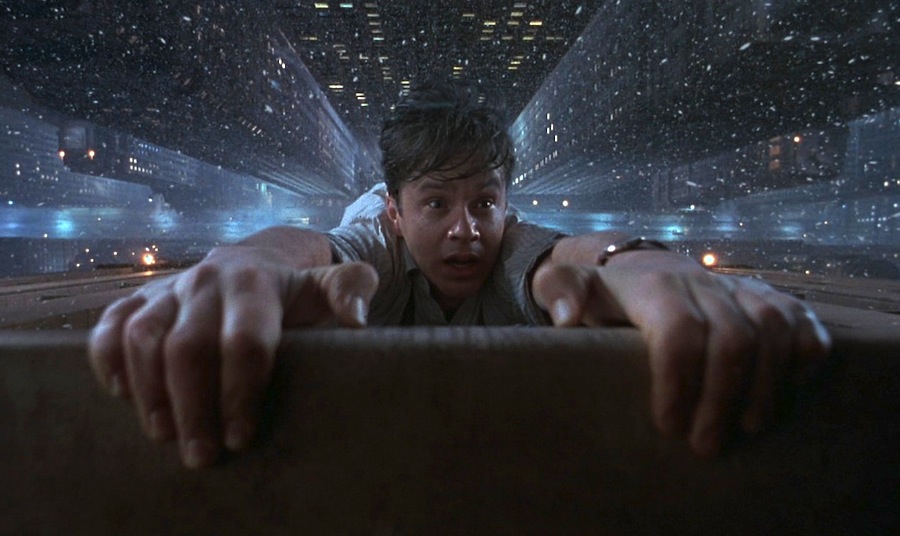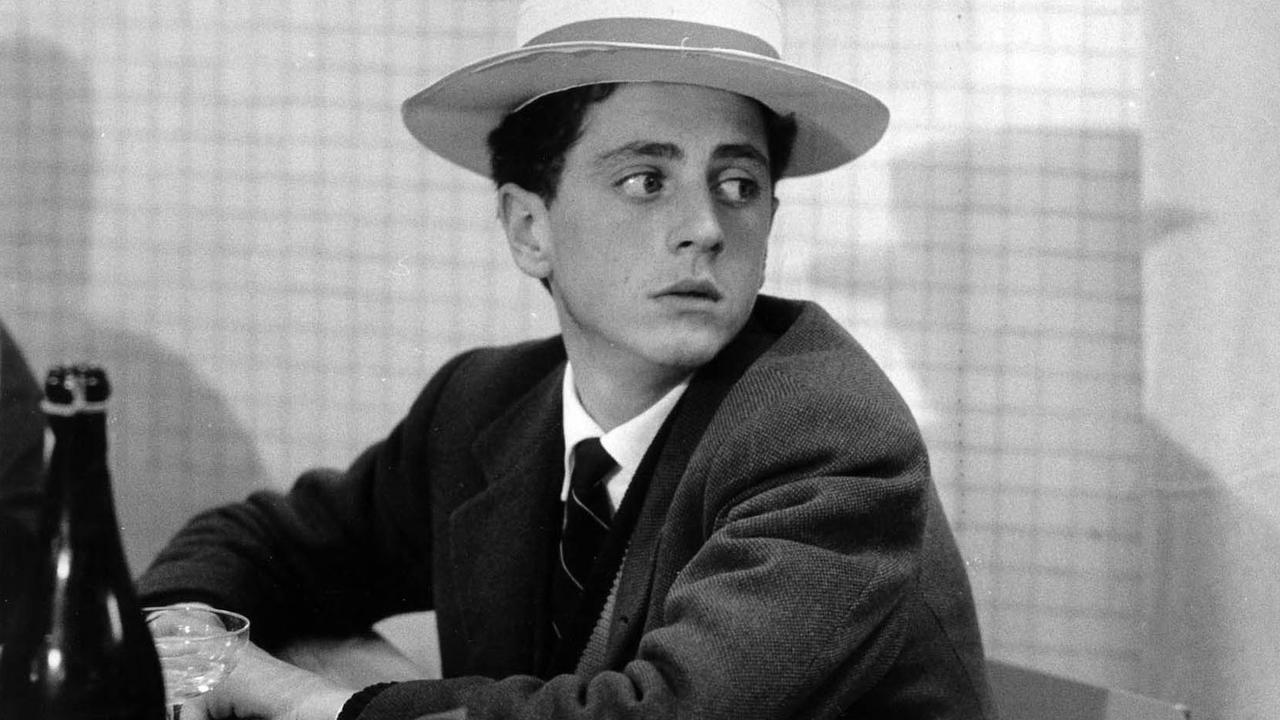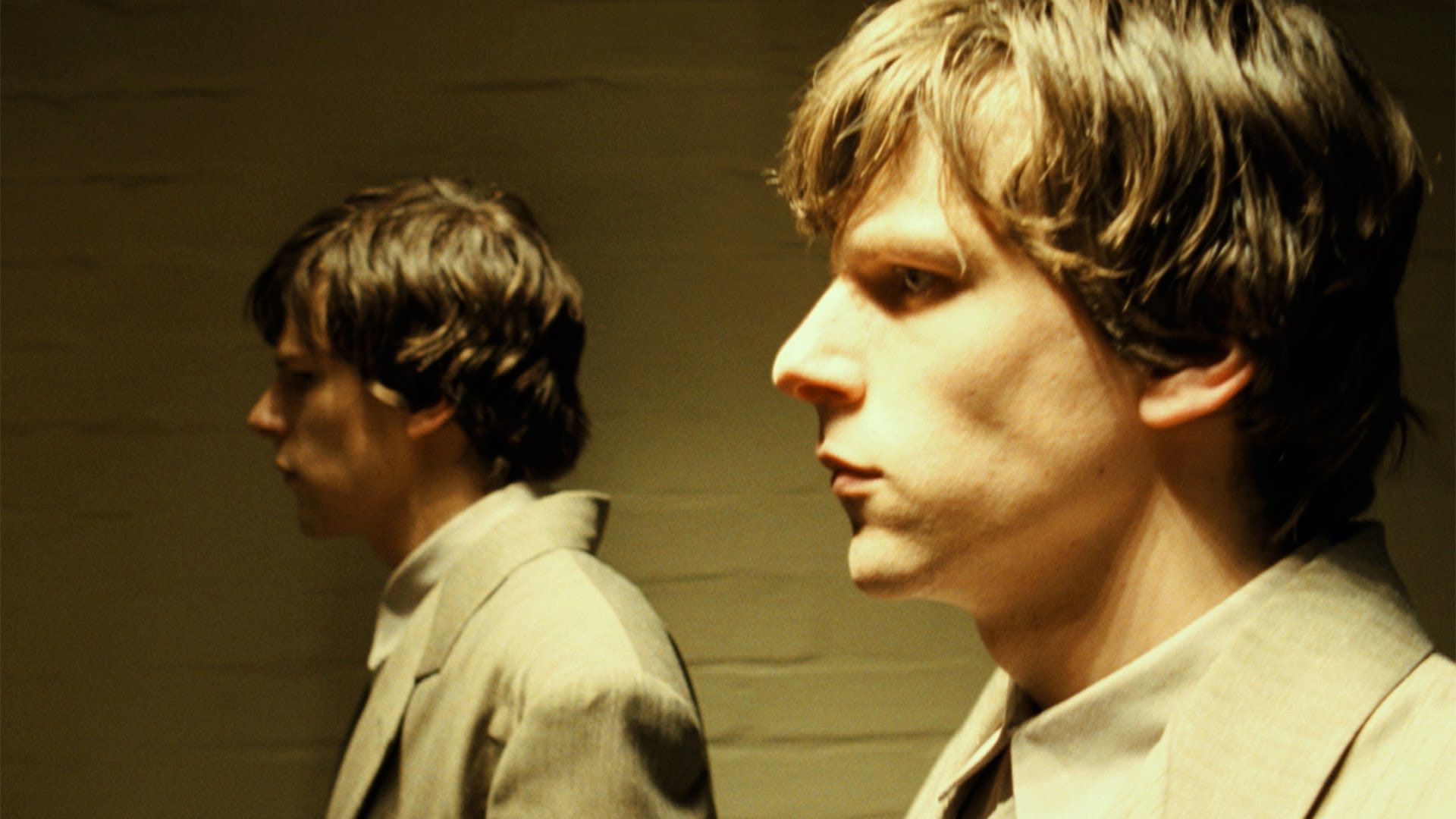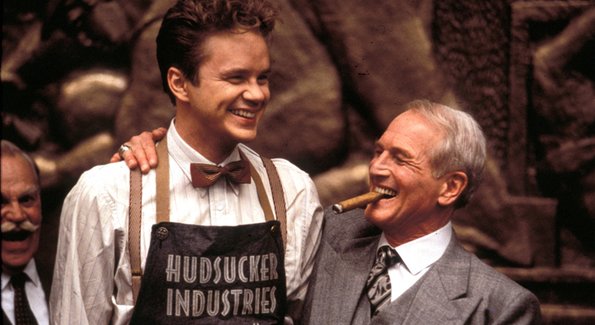
If you were to ask a random sample of white collar workers from anywhere in the world what the last thing they want to experience at nine in the morning is, you’re likely to hear mention of inhumane fluorescent light, a pair of panorama-blocking cork boards, a near lack of color, frigidly-conditioned air, totally insignificant conversation, and the smell of bargain coffee.
The hellhole that is the bureaucratic work space certainly isn’t a haven for aesthetic fulfillment, as efficiency reigns supreme in the life-draining hovel which engulfs one third of your day. More inhumane still are those who govern this breeding ground for potential executives, future burnouts, and very few parties outside either of these denominations.
Whether your brand of escapism involves angelic wings, horrific baby masks, and rogue air conditioning specialists or the idyllic prospect of spending the rest of your days doing absolutely nothing, an employment spent within a bureaucratic environment has proven to be a goldmine for inventive screenplays and remarkable literature. What follows is a brief walk through the eerily familiar administrative career filtered through the eyes of a creative thinker drastically miscast as an interchangeable corporate cog.
1. The First Job (Il Posto, 1961)

Whether you’re thrust into a corporate setting at an early age due to unexpected familial financial constraints or you meander into a series of odd desk jobs in spite of the bachelor of arts degree collecting dust in your closet, the first bureaucratic position is always an eye-opening experience for a number of reasons.
The adolescent victim in Il Posto (“The Job”) first learns the dehumanizing effect a complex system of rules and regulations plays on a helpless newbie as the girl he meets during a series of unexplained preliminary tests quickly becomes impossibly removed by the ruthless division of labor – and consequent division of lunchtime.
Though the events of the film unfold slowly over the course of just 90 minutes, the weight behind the expressions on non-professional actor Sandro Panseri’s prepubescent mug earnestly reimagine the unease of the uncertain objection one feels to unexplained directions given by humorless strangers, as well as the disappointment at settling for a position at odds with one’s blossoming personality – and a significantly older partner at the New Year’s dance.
By the time he’s installed into the role he set out to fill after degradingly being cast as a messenger boy for a stint, the older employees gripe about his being placed in the office’s most appealing desk (despite apparently inheriting it from a victim of suicide), and is quickly relocated in the movie’s bleak anti-climax. Perhaps Martin Scorsese’s alleged repurposing of Il Posto’s imagery for Raging Bull is testament enough to the angst bubbling under such a serene surface.
2. The Early Development of Crippling Anxiety (Vampire’s Kiss, 1989)

There’s a specific pressure in handling important documents when working on the bottom rung of any bureaucratic system, which often results in the file clerk’s wild imagination getting the best of her.
With such little knowledge of the mechanics of a bureaucratic organization, any manilla folder can feel requisite to the functionality of the greater machine, and without much understanding of the “whys” behind the “whats” of your everyday tasks, it’s hard to distinguish the importance – or plurality – of a dated business contract.
Despite its infamy deriving from an inspired free jazz performance by the film’s main character, Vampire’s Kiss can just as easily be read as the hyperbolized worries of lowly secretary Alva, as the misplacement of an irrelevant file leads to the violent undoing of her eccentric superior.
The film can be interpreted as a fever dream suffered by Alva, who for the first time considers the possibility of error within the perceptual realm of Peter Loew, a psychologically wounded single man likely fallen prey to the cokehead-yuppieism embedded in 1980s business culture.
Equipped with a wild imagination necessary for her position within the publishing industry, all it takes is one off-hand comment about vampirism to set Alva’s mind out on an anxious daydream inspired by a needlessly snowballing guilty conscience.
3. The Projection of a Successful Doppelganger (The Double, 2013)

Along with the sensation of total anonymity within an office stocked with anonymous drones come feelings of loneliness and isolation, which in part offer a surplus of time spent developing a second life in which you’re so successful at your job – and all other facets of your existence – that you finally receive the respect of your employers.
As is custom with doppelgangers, only one can remain by the end of the narrative, and it’s the protagonist’s task to struggle with the question of whether there’s any room in his personhood for this new concept of self to flourish.
Based on Dostoevsky’s existential workplace drama, The Double polarizes the employee’s proficiency in a professional and social setting by depicting identical subjects on either end of the Simon James spectrum, fluently channeling the frustration of the “real” Simon onto the empathetic viewer – it’s as much our duty as it is Simon’s to weigh the pros and cons of each personality and decide which to sacrifice.
Resuscitating the motif of the unattainable girl from Il Posto and the anxiety of top-down pressure from Vampire’s Kiss, the film takes place in an aptly bleak universe where an environment of existential claustrophobia casts shadows over the comedic condition of dysfunctionality.
4. The Stress Dream (The Trial, 1962)

With an explicit division of labor set in place to maximize efficiency, only those at the very top of the pecking order have access to all the information being collected and disseminated by each individual department. This leaves the Josef K’s of the world in a haze when it comes to the mechanics of the corporation as a whole, as each figurative cubicle wall represents the opacity of the goings-on behind it.
Sure, you’re surrounded by infinite rows of coworkers operating in identical work stations, but what if your neighbor was actually planted next to you to record your productivity? What if he’s really reporting to the Head Strategist of the Department of Josef K’s Heavy Scrutinization?
As the name Kafka has come to be synonymous with a repressed feeling of anxious paranoia combined with that one dream where you suddenly realize you’re back in fifth grade and for some reason totally naked, The Trial replicates this unconscious hellscape aptly.
As a palpable predecessor to Richard Ayoade’s interchangeably shadow-infested atmosphere, The Trial weaves a narrative through our deepest bureaucratic fears, thankfully replacing public nudity with a similar vulnerability inherent in being exposed as “unqualified.” Despite any credentials you may have amassed, you’re bound to be turned in for whatever crime of dispassion you probably didn’t commit.
5. The Big Promotion (The Hudsucker Proxy, 1993)

With such close proximity to the true heroes of the capitalist success story, any administrative position within the catacombs of a 45-story corporate cathedral can seem like it’s only an arm’s length from lifelong prosperity for a no-name go-getter from Muncie, Indiana.
When the Blue Letter comes for you, an engaging sales pitch is all that stands in the way of a life-changing opportunity to file your patent for the Wacky Circumference – at least as soon as your new marketing team lands on a better name for it. With a business degree under your belt, there’s no reason to believe that you’re any less qualified for such a position than any of the silver-haired, world-weary white men who’ve preceded you.
But for Norville Barnes, this fresh-faced optimism is no match for the reality of corporate politics and the exploitation of youthful naivety. As the titular proxy, the bumbling mail clerk is installed as president of Hudsucker Industries under the pretense that his blueprint for a new toy (i.e. a single sheet of paper with a circle on it) will save the company.
With the tunnel vision of success keeping him from realizing that he’s being used by his company – and his journalist ladyfriend – the dramatic irony of the situation is continually amplified by his dedication to filling the shoes of his egotistic predecessors.